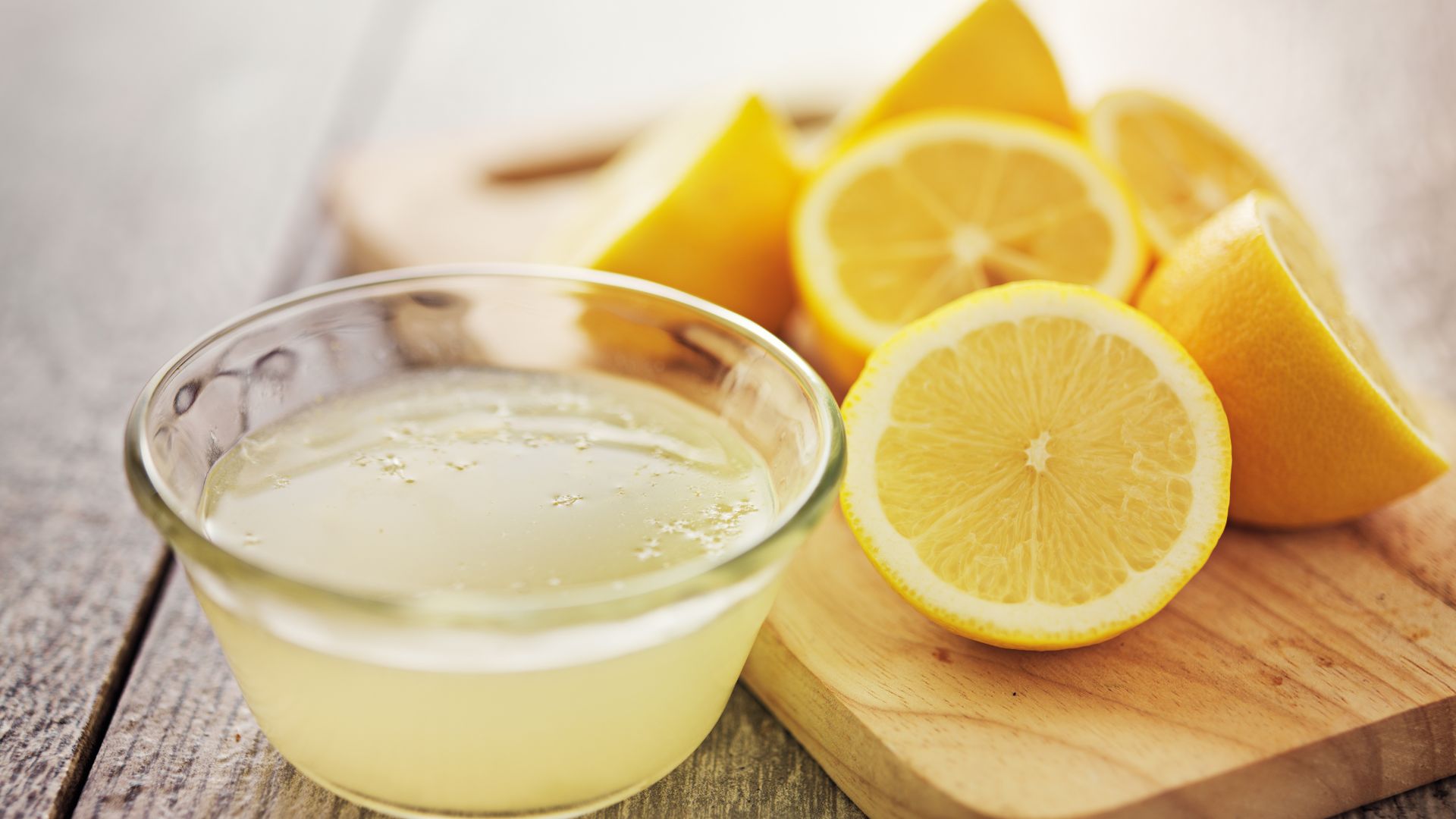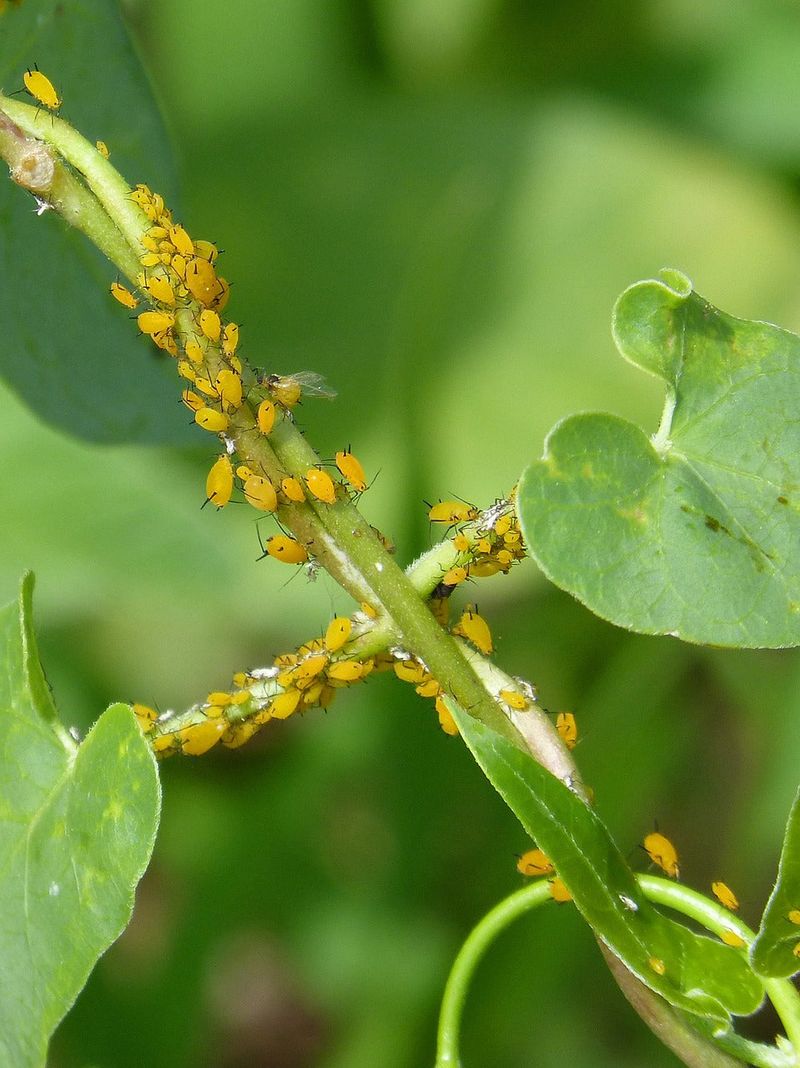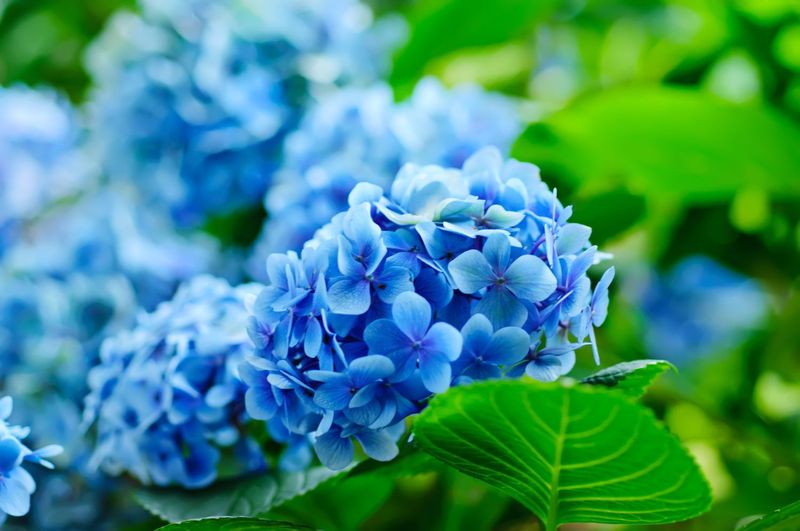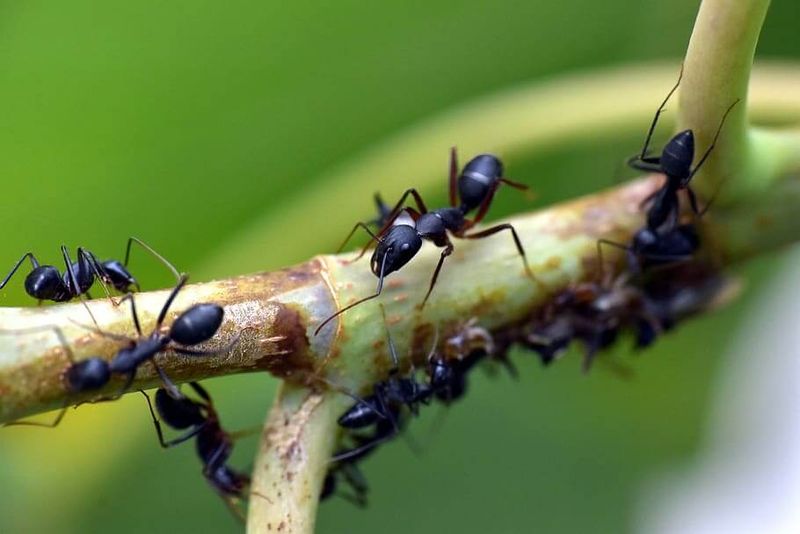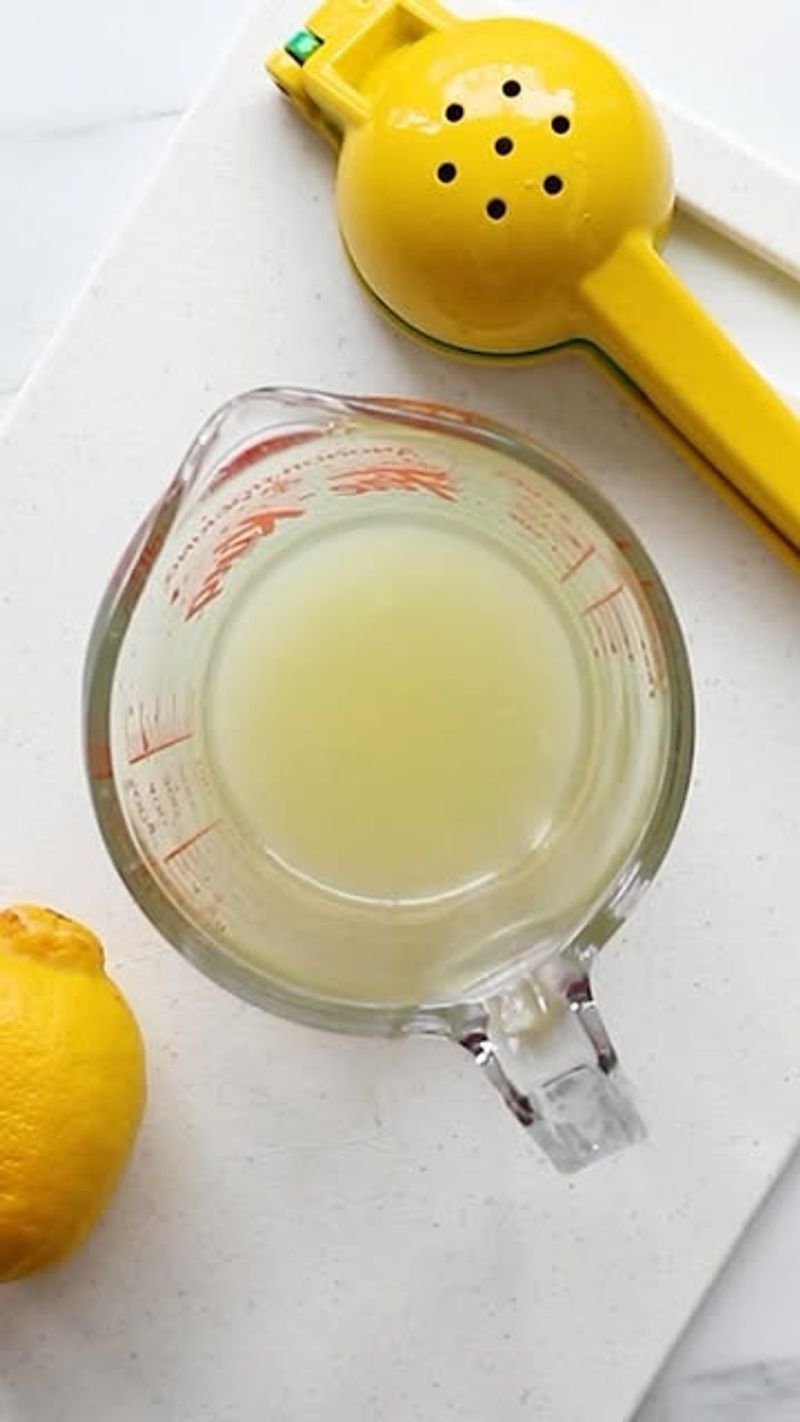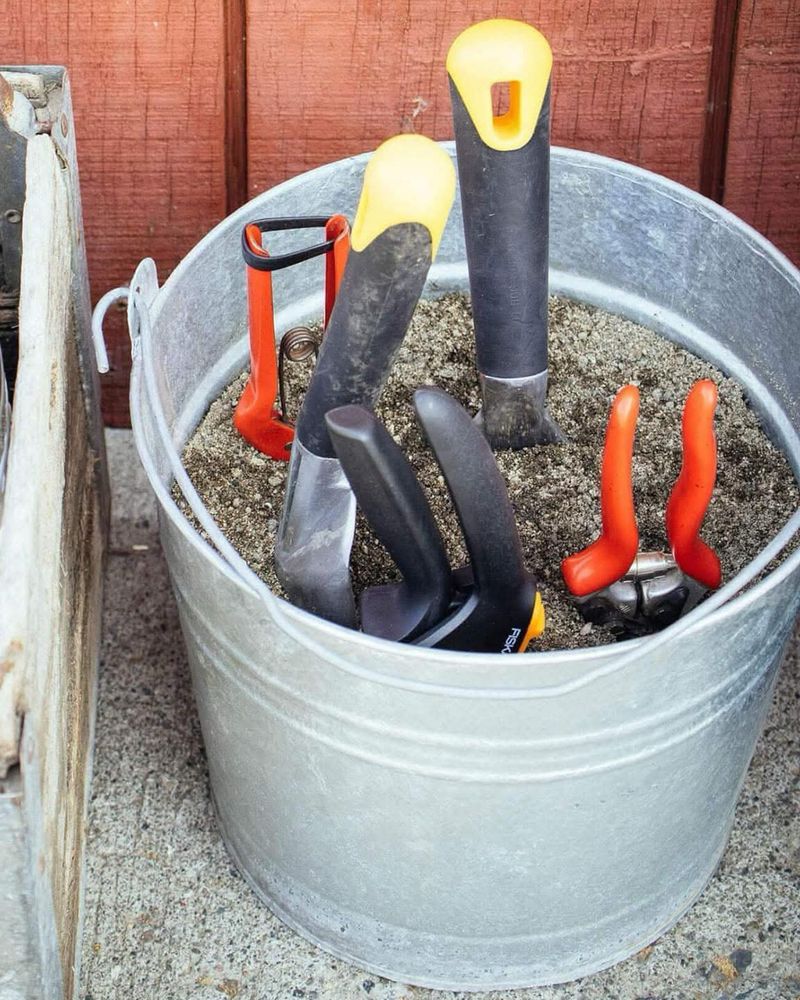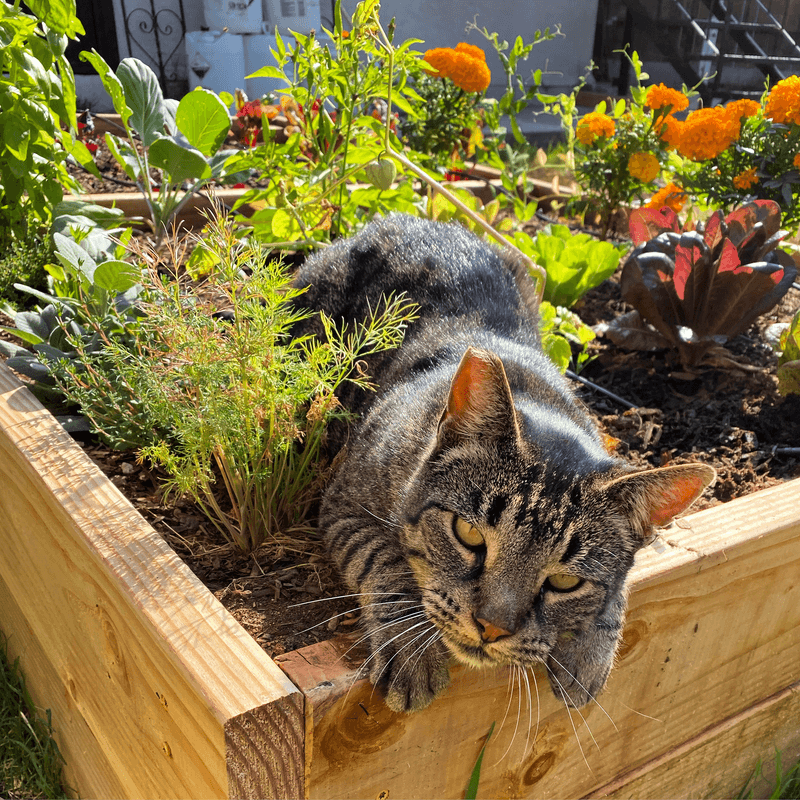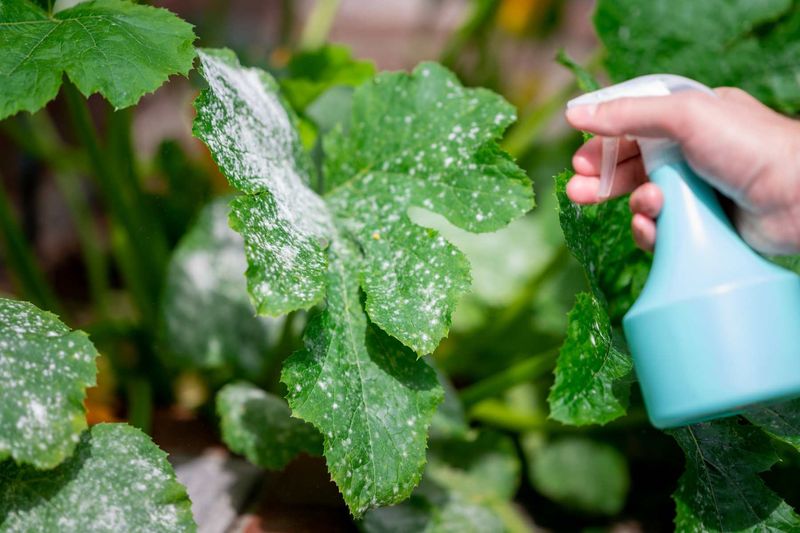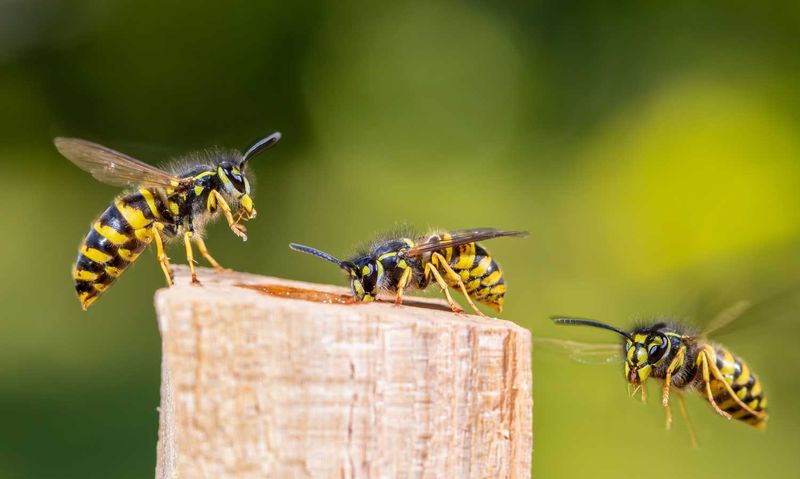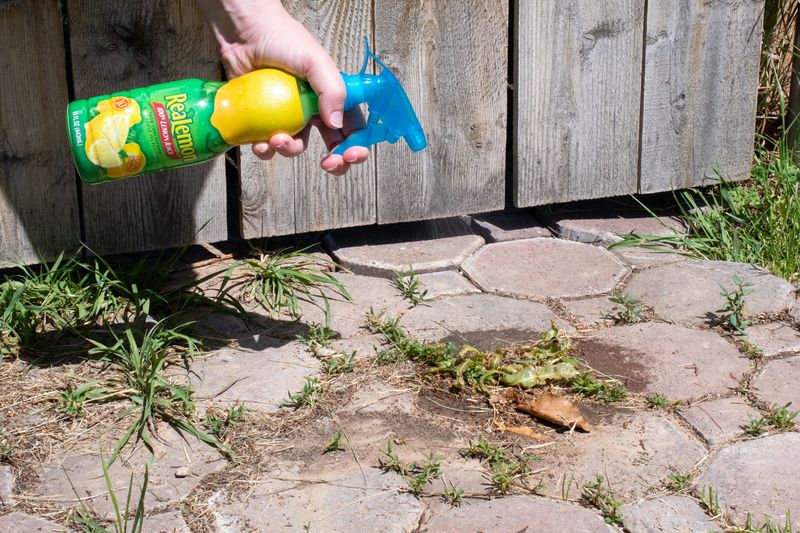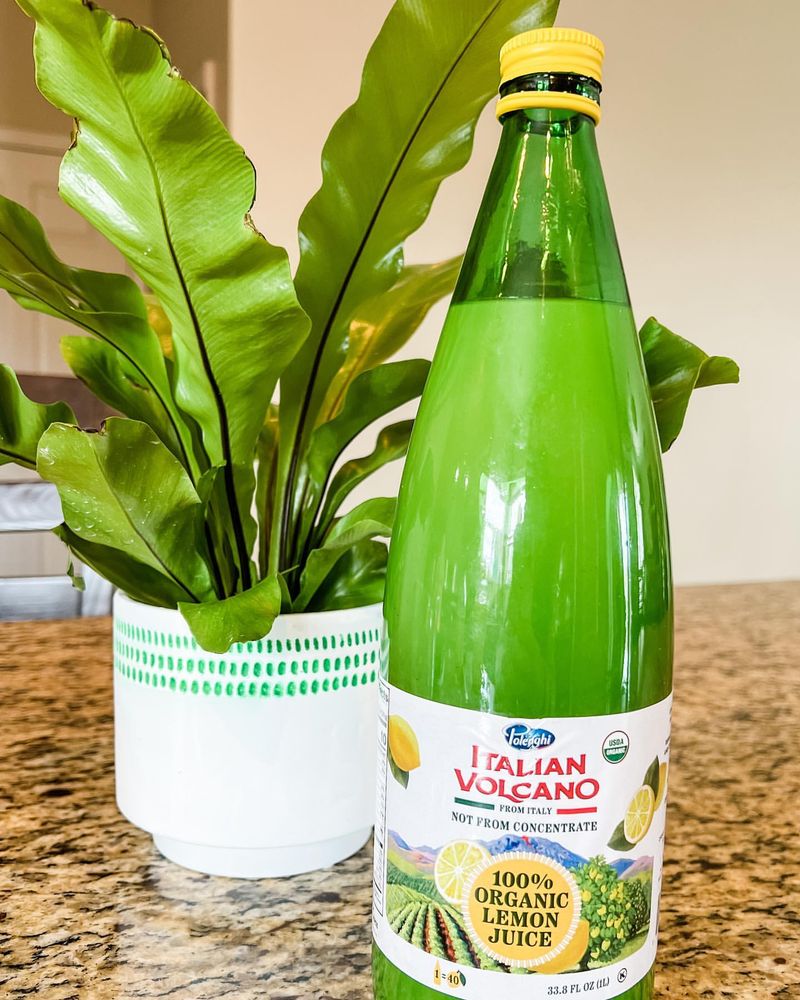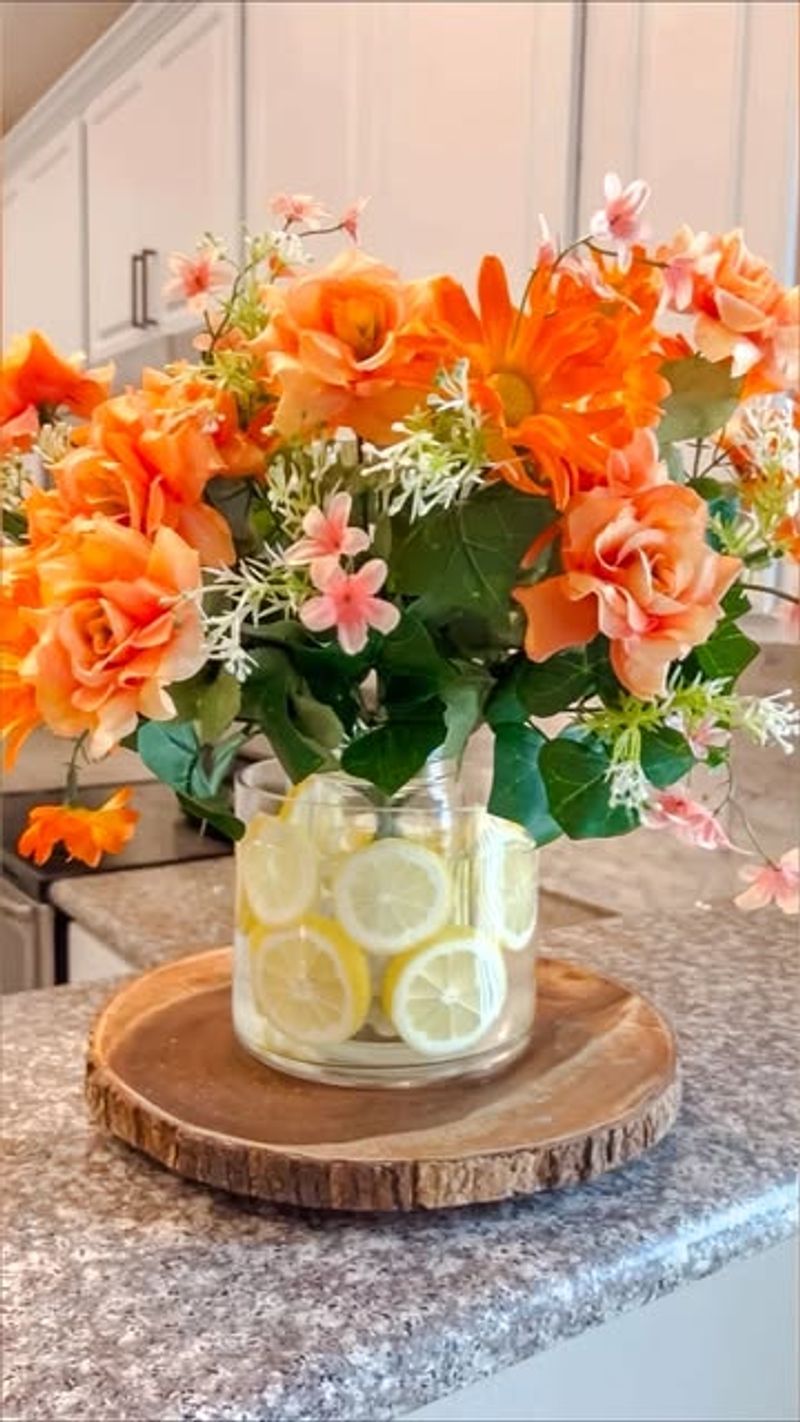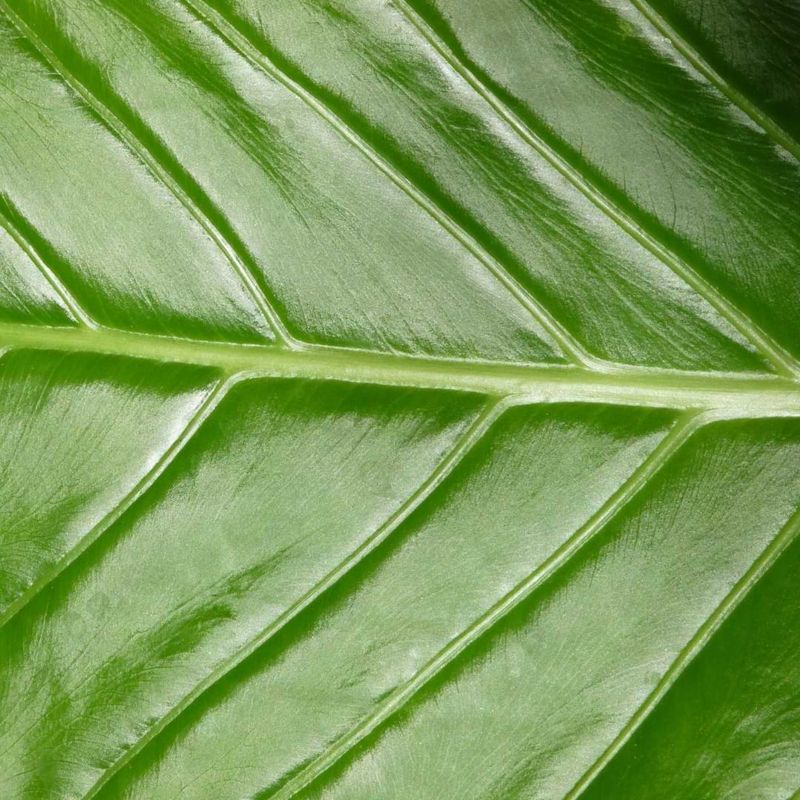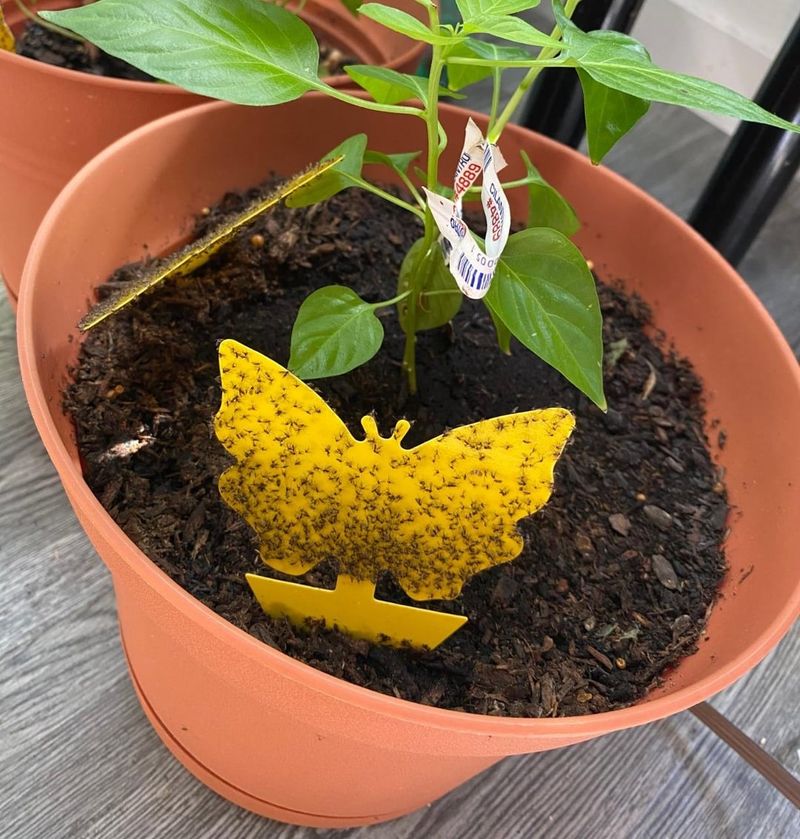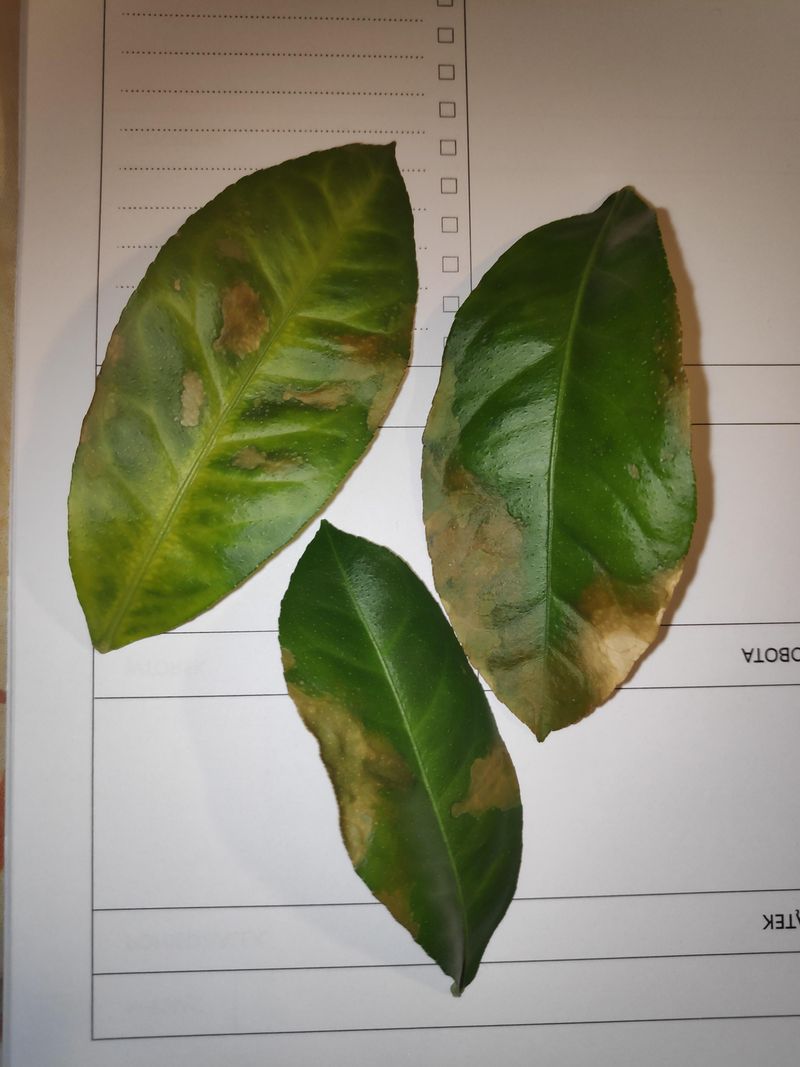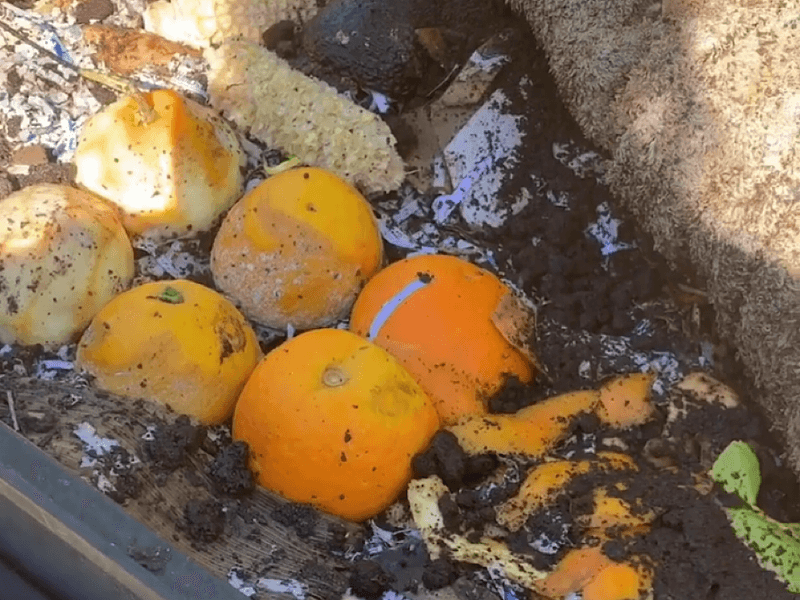Lemon juice isn’t just for cooking—it’s a zesty game changer in the garden, too. Its natural acidity helps deter pests, clean leaves, and even adjust soil pH without reaching for harsh chemicals. And hey, those leftovers from your lemonade? Put them to work.
Use it sparingly on plants that prefer slightly acidic conditions like tomatoes, azaleas, and blueberries. A diluted mix—one part lemon juice to four parts water—can be sprayed to fight off insects or freshen up foliage with a citrusy punch.
But beware: lemon juice can be too strong for tender plants or alkaline soil lovers. Overuse can cause leaf burn or disrupt root growth. With the right dose and placement, it’s a garden ally—but only if handled with care.
1. Natural Aphid Repellent
Those tiny green bugs munching on your roses won’t stick around after a lemon juice spray. Mix one part lemon juice with four parts water in a spray bottle for an effective solution.
Apply to affected areas in the early morning or evening, avoiding the hot midday sun. I tried this on my overrun tomato plants last summer and the aphids disappeared within days.
The acidic nature disrupts the insects’ feeding patterns without harming beneficial garden visitors like ladybugs.
2. Soil PH Adjuster
Many plants thrive in slightly acidic soil, making lemon juice a handy pH modifier. For acid-loving plants like blueberries, azaleas, and hydrangeas, a diluted solution can work wonders when soil becomes too alkaline.
Mix two tablespoons in a gallon of water before applying around the base of plants. The effect isn’t permanent but can help during growing seasons.
My hydrangeas shifted from pink to beautiful blue blooms after several applications last spring.
3. Ant Trail Disruptor
Those orderly ant highways crossing your garden beds can be erased with lemon juice. The citrus acid destroys their scent trails, confusing the workers and preventing them from finding their way back to your plants.
Simply spray undiluted lemon juice along their pathways. The strong smell overwhelms their communication system without killing them outright.
I’ve found this works better than commercial products for deterring ants from my container garden, and it’s completely safe for edible plants.
4. Seed Germination Booster
Some seeds with tough outer coatings benefit from a quick acid bath before planting. Soaking certain seeds like tomatoes and peppers in highly diluted lemon water can speed up germination.
Mix one teaspoon of lemon juice in one cup of water and soak seeds for no more than 10 minutes. The mild acid softens the seed coat, allowing water to penetrate faster.
When I tested this method with morning glory seeds, they sprouted three days earlier than untreated ones.
5. Plant Tool Disinfectant
Garden tools can spread disease between plants faster than gossip at a garden club meeting. Undiluted lemon juice makes an excellent natural disinfectant for pruning shears and other small tools.
The acid kills many bacteria and fungi that might be lurking on your equipment. Simply wipe tools with lemon juice between cuts or plants, especially when pruning diseased specimens.
For maximum effectiveness, I let the juice sit on the metal for at least 5 minutes before wiping it off.
6. Cat Deterrent
Neighborhood cats using your garden beds as litter boxes? Strong citrus scents naturally repel most felines. Create a barrier spray with equal parts lemon juice and water around the perimeter of vulnerable areas.
Reapply every few days or after rain for continued protection. The cats will typically find the smell offensive enough to seek bathroom facilities elsewhere.
After trying countless commercial repellents, this simple solution finally kept my neighbor’s tabby from digging up my newly planted herbs.
7. Fungus Fighter
Early signs of powdery mildew can be treated with a lemon spray before the fungus takes hold. Mix one part lemon juice with ten parts water to create a mild fungicide that won’t burn leaves.
Spray affected areas in the morning so plants can dry completely before evening. The natural acids help disrupt the fungal growth cycle without harsh chemicals.
This saved my zucchini plants last year when white patches first appeared on their leaves – catching it early is key.
8. Wasp Repellent
Summer gatherings in the garden often attract unwanted flying guests. Placing lemon halves studded with cloves around your outdoor space creates a natural wasp deterrent.
The combination of citrus and clove scents confuses and repels wasps without harmful chemicals. Replace these natural repellents every two days for maximum effectiveness.
This trick saved our patio dinner last August when wasps from a nearby nest kept investigating our food – they completely avoided the area after we set out our lemon barriers.
9. Weed Killer For Cracks
Stubborn weeds growing between patio stones or driveway cracks can be eliminated with straight lemon juice. The high acidity damages the weed’s structure and prevents regrowth when applied directly to the unwanted plants.
For best results, apply on a hot, sunny day when the lemon juice’s effectiveness will be amplified by the heat. This method works best on young weeds with shallow root systems.
I’ve found it particularly effective on moss and small broadleaf weeds in my brick walkway.
10. Nutrient Uptake Enhancer
Plants sometimes struggle to absorb iron from alkaline soils, leading to yellowing leaves. A diluted lemon solution can temporarily make iron more available to plants suffering from chlorosis.
Mix one tablespoon of lemon juice in a gallon of water and use for watering affected plants. The acidity converts locked-up nutrients into forms plants can actually use.
My container citrus trees perked up remarkably after two treatments, with new leaves coming in much greener than before.
11. Cut Flower Preservative
Fresh-cut flowers from your garden will last longer with a homemade lemon juice preservative. Add two tablespoons of lemon juice and one tablespoon of sugar to a quart of warm water for an effective vase solution.
The acid helps prevent bacterial growth while the sugar provides nutrition. Change the solution every two days for maximum flower longevity.
My cut dahlias typically last nearly twice as long with this mixture compared to plain water.
12. Leaf Shine Formula
Houseplants with broad, waxy leaves often collect dust that blocks light absorption. A gentle lemon solution creates a natural shine without commercial products.
Mix one teaspoon of lemon juice in a pint of water and apply with a soft cloth to sturdy-leaved plants like rubber trees or philodendrons. The mild acid removes mineral deposits and restores the leaf’s natural luster.
Never use this on fuzzy-leaved plants like African violets – stick to smooth-leaved varieties only.
13. Compost Activator
A sluggish compost pile can get kickstarted with lemon juice’s natural acids. Adding lemon rinds and a quarter cup of juice to your compost helps break down tough materials faster.
The acids accelerate decomposition while attracting beneficial microorganisms. Place citrus materials in the center of the pile where heat builds up most effectively.
My winter compost pile, which typically slows to a crawl, maintained decent activity after I started adding weekly lemon scraps from the kitchen.
14. Insect Trap Bait
Fruit flies and fungus gnats plaguing your indoor plants can be lured away with a lemon-based trap. Mix equal parts lemon juice and water with a drop of dish soap in a small container.
Place these traps near affected plants but not on the soil. The citrus attracts the insects while the soap breaks surface tension, causing them to sink.
I caught dozens of fungus gnats in three days using this method near my overwatered pothos plant.
15. NEVER USE: Direct Leaf Application
Applying undiluted lemon juice directly to plant leaves is asking for trouble. The high acidity can burn delicate tissues, especially when exposed to sunlight which intensifies the effect through a magnifying action.
Even diluted solutions should never be sprayed on plants during hot, sunny periods. The damage appears as brown spots or entire leaves turning crispy within hours.
I learned this the hard way with my prized ferns – they developed unsightly burn marks after a midday lemon spray.
16. NEVER USE: On Seedlings
Young seedlings have extremely delicate tissues that can’t handle even diluted lemon juice. Their developing root systems and tender leaves are easily damaged by acidity that mature plants might tolerate.
Wait until plants have at least 4-6 true leaves before considering any lemon juice applications. Even then, start with extremely diluted solutions.
My tomato seedlings wilted within hours after what I thought was a mild lemon spray – only the untreated ones survived to planting time.
17. NEVER USE: In Worm Bins
Vermicomposting systems rely on healthy worms that are extremely sensitive to acidic environments. Adding lemon juice or even too many citrus peels can make the environment hostile to your composting helpers.
The acidity can cause worms stress, leading them to try escaping the bin. If you notice worms clustering together or climbing walls after adding citrus, your bin has become too acidic.
My worm population decreased dramatically after I added too many lemon rinds – it took months to restore balance.

